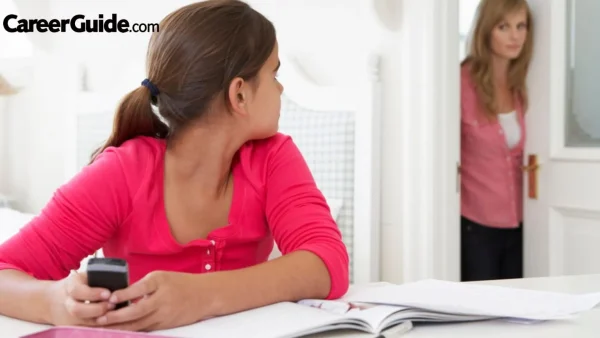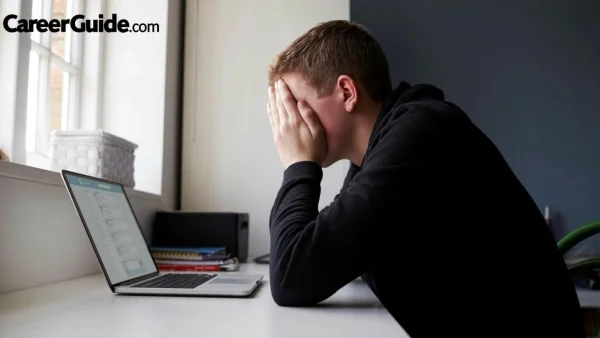In this growing era of social media in teenagers and students, it is necessary to know whether social media does more positive or negative to mental health. According to a report on students almost 95% of teens have smartphones, and about 75% of teens are on various social networking sites and, about 85% are on YouTube. Here we will discuss some negative effects of social media on students
Negative effects of social media on students:
It wastes time
negative effects of social media on students in today’s’ world is the biggest time waster. Not just teenagers, even adults are so much into social media that they overlook the time. Furthermore, students use social media in classrooms during lectures. Additionally, waste their free time scrolling the screen and eventually end up getting addicted to it.

It causes social problems
Negative effects of social media on students causes social problems as teenagers on social media writes and comments publicly. It may hurt sentiments and, viewers may not like it. Also, there is a lot of disturbing content that can implant the wrong mindset in students. Students many times feel inferior as they tend to compare themselves with others.
It Causes Health Problems
This is one of the most concerning negative effects of social media on students mental health. As students nowadays like to sit and play online rather than going out to play in an open ground . As a result, because of a lack of physical exercise and movement, teenagers are prone to obesity and depression. Fresh air is a requirement of a healthy mind.
Inappropriate influence
There are many articles and posts related to social issues and current affairs. But, some of these articles contain inappropriate content. As a result, students may get influenced by anti-nationalist and elusive political practices on social media . Many political parties try to inspire teenagers to join them through social media

Victim of cyber-crime
Cyber-bullying is one of the most common harassment s faced by people using social media. Teenagers using social media get attacked by hackers and thieves and, many times, get exploited and blackmailed. There are some anonymous applications and software available. To acquire data of users, such applications ask for permission and, users generally permit without giving a second thought. As a result, they use this data to earn money.
You can always ask for help when facing cyber bulling.
Productivity and Concentration
One negative effects of social media on students is that they discuss social media in the classroom, causing distraction and low concentration levels in them. Also, students tend to check social media while doing some work. It results in low productivity. As a result, grades and academic performance of students degrade.
Privacy and Data Sharing
On social media, there is no privacy of data. And also, the data shared is accessible to anyone and, people tend to exploit it. Hackers use bank account details for fraud to earn money. People tend to share details without a background check and end up regretting it.
Deviation
Students deviate from career and personal development goals by the overuse of social media. Another negative effects of social media on students is that they get attracted by social media and waste their time by using it continuously. By this, they get deviated from their path and end up doing something average .
Attraction to material things
After seeing various negative effects of social media on students posts and articles of actors and other famous personalities. As a result, teenagers tend to attract to unrealistic beauty and material things. After seeing others, students compare themselves and desire similar things that they might not be able to afford. As a result, many teenagers stole money and other items to fulfill their desires.
Anger issues and addiction
After excessive use of social media students had anger issues. This is another negative effects of social media on students as they had difficulty in controlling their anger and frequent mood swings. Teenagers get addiction after the excessive use of social media. Many students, after the excess use of social media, some are admitted to the hospitals as they face various neurological and other disorders.
Anxiety issues
The definition of negative effects of social media on students is very misleading. According to experts who are finding that- ” the more time teens spend on social media, the lonelier and more anxious they get.” Also, in addition to this, researchers are finding that- ” when someone develops depression and withdraws from peers, they see other people on social media smiling and at parties with friends. It magnifies their sense of isolation. “
These were some negative impacts of negative effects of social media on students mental health. But, social media is not the creator of the problems, but the problem arises when we use it without a controlled manner. We do not analyze the usage and end up causing trouble for us and others.
Hence, social media is both a boon and a bane for us. And hence, it is necessary to educate students about how to use social media to get the best use of it for their career and personal development. Doing anything in excess is never a good thing, and spending too much time on social media is very hazardous to student’s mental health.
STAY HAPPY, STAY ACTIVE!!
You may also like finding some benefits of social media and how it helps the students.
FAQs about Negative effects of social media on students
Q:What are some of the negative effects of social media on students academic performance?
- Social media may be a significant source of distraction for students, especially when they are attempting to study or complete their assignments. Students who used social media while studying performed noticeably worse on examinations than those who did not use it, according to a University of Pittsburgh research.
- Social media usage might contribute to procrastination. Students may be tempted to visit their social media accounts rather than complete their tasks when they are bored or feeling overloaded. Lower grades and missed deadlines may result from this.
- Social media can contribute to information overload, which makes it challenging for pupils to concentrate and study. According to a study conducted by the University of California, Los Angeles, pupils who were
Q:What are some of the negative effects of social media on students mental health?
Depression: Social media, particularly among young people, might exacerbate depression. According to a University of Pittsburgh study, teens who used social media for more than two hours per day were more likely than teens who used it for less than an hour per day to report having depressive symptoms.
Anxiety: Social media, especially among young people, can exacerbate anxiety. According to a University of California, Los Angeles study, teens who used social media for more than two hours per day were more likely than teens who used it for less than an hour per day to report experiencing anxious symptoms.
Body image problems: Social media, particularly among young women, can exacerbate body image problems.
Q:What are some negative effects of social media on the social development of students?
- Cyberbullying: A critical issue that might have a negative effect on students’ social growth is cyberbullying. According to a University of Pittsburgh study, adolescents who experienced cyberbullying were more likely to have depressive, anxious, and poor self-esteem symptoms.
- Lack of face-to-face engagement: Social media can also result in a lack of this crucial for social development type of interaction. According to a University of California, Los Angeles study, teenagers who spend more than two hours per day on social media are more likely to report feeling lonely than teenagers who spend less time online (less than one hour per day).
- the social growth of students. According to a University of Pittsburgh study, social media addicts were more likely to report experiencing issues with their interpersonal connections and academic performance.
Q: What can students do to reduce the negative effects of social media?
- create boundaries: Students should create boundaries for their use of social media. This entails establishing a daily time limit for how much time they will spend on social media.
- Selectiveness is advised when it comes to the social media sites and users that students choose to follow. Only those who boost their self-esteem should be followed.
- Take pauses: Throughout the day, students should take breaks from using social media. This will assist students in maintaining their concentration and preventing social media addiction.
- Talk to someone: Students should speak with a trusted adult, such as a parent, teacher, or counsellor, if they are having trouble coping with the negative effects of social media.




















